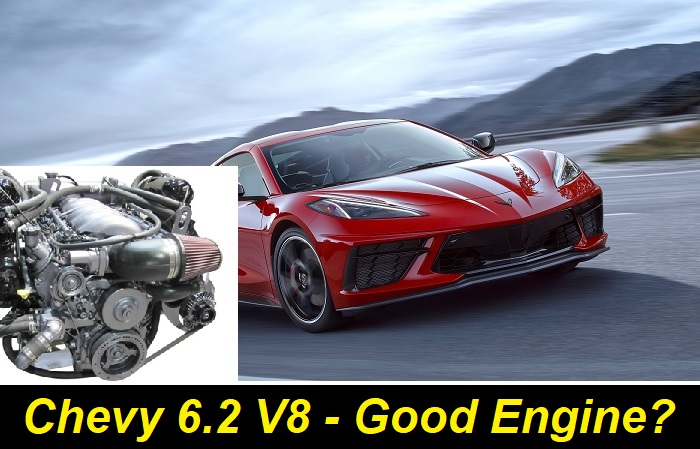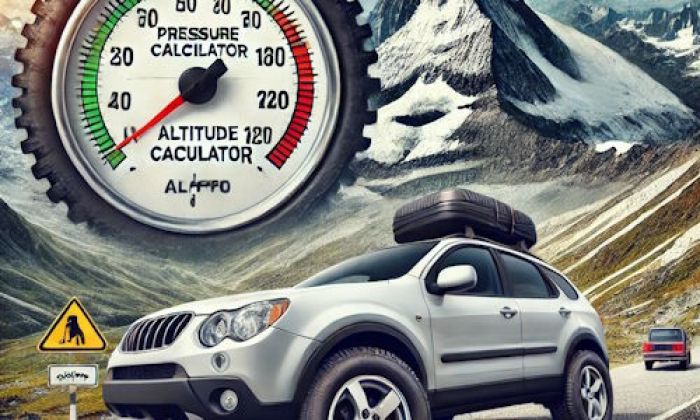Chevrolet engines are known to be really practical and long-lasting. The company seems to check the technologies before selling them on the market, unlike some other manufacturers. Today, we'll be speaking about the 6.2-liter V8 engine that can be found in many Chevy cars starting with SUVs and trucks and finishing the sports cars like Camaro or Corvette.
We know for sure that the small-block engine is a good choice. But we will try to motivate our thoughts about this engine and to show all drawbacks that it has. We will also try to give you the full overview of what this engine can do and whether you can supercharge or tune it to make it deliver more power and torque.

Key features and my opinion about the engine
- Production years:2014-2024
- Average lifespan of LT1:280,000-320,000 miles
- Fuel supply type:direct injection
- Power range:455-460 hp
- Fuel efficiency:bad
- Engine block material:aluminum
- Engine reliability score:high
- The most common problems:oil consumption, cooling system problems, head gasket failure, spark plugs fail prematurely.
Some common specs and features of the 6.2-liter V8 engine
Chevy loves big engines. And while many other companies downsize their powerplants and install huge turbochargers on tiny engines, Chevrolet continues using much more reliable "small-block" engines with big displacement and great specs. The 6.2-liter engine was first introduced in 2014, it belongs to the generation 5 small-block (or LS) engines.
The versions called LT1, LT2, LT4, and LT5 were mainly used in Corvettes and Camaros. Also, they were used in some Cadillac vehicles. But the L86 and L87 versions were installed in Silverado, Tahoe, Suburban as well as in GMC Yukon and Yukon XL, GMC Sierra, and Cadillac Escalade.
This engine is pretty cool in terms of specs:
- the total displacement is 6,162 cc which is pretty much compared to all modern engines;
- the power range is from 420 to 755 horsepower which is amazing;
- the torque range is from 455 to 715 lb-ft;
- there are both turbocharged and naturally aspirated versions;
- the simple construction of the head, only 2 valves per cylinder;
- the direct injection which is good for power and fuel economy;
- truck engines have a lot in common with sports cars engines;
- some versions are still in production, although a new 6th generation is already there;
- the engine is durable and reliable, it has much fewer issues than its counterparts.
Well, there is basically nothing interesting we can tell you about the specs of this engine. It's a simple and durable construction that can serve you for years and can go a lot of miles. Of course, it still needs good maintenance and high-quality parts. But we can't remember any engine that wouldn't need this.
So, the 6.2 V8 by Chevy is one of the most interesting "small-block" engines. It's an 8-cylinder unit with big displacement and wonderful specs. It has been used in many different vehicles and it has already proved to be reliable and cool in terms of longevity.
How many miles can the 6.2-liter Chevy engine go?
The LS-series GM engines are durable. But we can think of three main groups of these engines and their reliability depends on which group they belong to.
So, here are these groups:
- Naturally aspirated engines. These are basic 6.2-liter V8 LT1 engines with the best durability. They can go around 300,000 miles and cause basically no problems. These engines are very reliable.
- Turbocharged units. Most of them have been used in sports cars or in Cadillac vehicles. They are very powerful and fun to drive, but their longevity is a little worse than in the first group. We would say, these engines can go around 220,000 miles.
- High-performance engines. It's all about the LT5 series that offers 755 horsepower and is used in Corvette ZR1. This is a unique engine with wonderful performance. But we suppose it has to show the longevity of 150,000 miles or less depending on the conditions of use.
We are talking about the average longevity. It means that a certain engine can go 500,000 miles with no major problems while some others can go about 150,000 miles because they have got bad maintenance.
The longevity depends on many factors and we know how to make your small-block engine live longer.
What affects the longevity of the 6.2-liter V8 LT1 engine by GM?
- Oil. Unfortunately, this engine is extremely dependent on oil quality. If you decide to experiment with the type of oil or its amount, you will have problems with the engine.
- Fuel quality. Direct injection is good for fuel economy and power, but it's highly sensitive to the quality of gasoline. So, premium gas is the only option.
- Towing weight. If you tow more than the engine can tow, you will kill it very soon. It's especially important for truck owners.
- Revving up. Engines with big displacement are not very glad to rev up to high RPM. They want to work in a low-RPM range and deliver optimal torque.
- Overheating. The cooling system is reliable, but you should always control the engine temperature. Any overheating may cause severe consequences like engine head problems, gasket failure, etc.
- Poor maintenance and repair. If you see that your engine is not working properly, better visit the repair shop as soon as possible.
Problems and drawbacks of the 6.2 V8 engine
Chevrolet is not a luxury vehicle and GM doesn't tend to create luxury products without any drawbacks. But the 6.2-liter engines were not only used in cheaper Chevy vehicles. They were also installed in Cadillac cars which shows their better reliability and longevity.
Anyway, we've found some problems and drawbacks that are important to remember. For example, a Silverado with this engine will show about 13 MPG in the city and only 20 MPG on the highway. The figures will be approximately the same on a Corvette or Camaro. Not very economical, we should say.
Also, we've checked whether Chevy owners say something bad about 6.2 V8 engines. And here are its main problems:
- Carbon build-up in intake ports. Direct fuel injection creates this problem and you will need to clean the system quite often. It's not only about the 6.2 Chevy engine, it's basically about all direct injection engines.
- Cylinder management system. In modern V8 engines, all companies introduce a system that turns off some cylinders when the vehicle is on the highway, for example. But in most cases, this system fails and gives problems.
- 8-speed automatic transmission problems. These engines were equipped with an 8-speed automatic transmission which is not a problem-free unit at all. It can vibrate and show other problems but repairing these transmissions is a disaster for your budget.
- Engine mount problems. It can seem a minor issue, but if you don't notice the problem on time, it can ruin your engine systems. The mounts are too weak for a big and heavy engine, they keep failing. And the engine starts moving around the compartment.
- Exhaust manifold bolts. A lot of Chevy owners have reported the exhaust manifold bolts to brake and create problems with exhaust leaks. It actually sends the engine to a limp mode because of oxygen sensor errors.
- Intake manifold gasket problem. This problem is also popular and it can create a vacuum leak leading to problems with power, idle RPM, etc. But this problem is easy and cheap to repair.
- Head overheating. The engine heads in this unit are not very tolerant of overheating. First of all, the head gaskets will fail. But if the temperature is too high, the heads can be also damaged. Repairing them after such damage isn't possible, replacing them is the only way.
We can't say that the 6.2-liter V8 engines by GM are very bad. They are really good in terms of longevity and specs. But they still have some problems like poor gas mileage, some problems with the injection system, and some issues with mounts and manifolds. We should also say that the majority of these problems are easy to avoid and control.
The V8 engines in Chevy vehicles are not very expensive to maintain. Though, if you forget about maintaining or servicing your engine, it may bring some bad surprises and make you spend your money. The 6.2-liter engine can be very expensive if you don't maintain it regularly.
Final words
We love engines with big displacement. So, the 6.2L Chevy V8 LT1 engine (LS-series) is a good option for us. But if you want to get a lot of miles per one gallon of fuel or if you are extremely concentrated on ecology, getting a vehicle with this engine inside doesn't seem a very good idea.
You can buy a sports car like Corvette or Camaro with this engine or a big truck and SUV. The engines in these types of vehicles are set differently, they have different tuning.
We don't recommend any kinds of tuning, supercharging, or modifying your engine in any other way. This may bring it to death very quickly.
About the authors
The CarAraC research team is composed of seasoned auto mechanics and automotive industry professionals, including individuals with advanced degrees and certifications in their field. Our team members boast prestigious credentials, reflecting their extensive knowledge and skills. These qualifications include: IMI: Institute of the Motor Industry, ASE-Certified Master Automobile Technicians; Coventry University, Graduate of MA in Automotive Journalism; Politecnico di Torino, Italy, MS Automotive Engineering; Ss. Cyril and Methodius University in Skopje, Mechanical University in Skopje; TOC Automotive College; DHA Suffa University, Department of Mechanical Engineering





Add comment